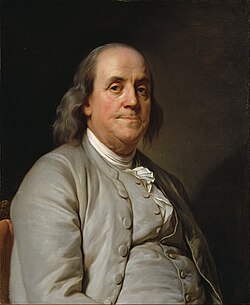| Benjamin Franklin Award | |
|---|---|
 Benjamin Franklin (1706-1790) | |
| Awarded for | an individual who has, in his or her practice, promoted free and open access to the materials and methods used in the life sciences. |
| Sponsored by | Bioinformatics.org |
| First award | 2002 |
| Website | www |
The Benjamin Franklin Award is an annual award for Open Access in the Life Sciences presented by Bioinformatics.org to an individual who has, in his or her practice, promoted free and open access to the materials and methods used in the life sciences. [1]